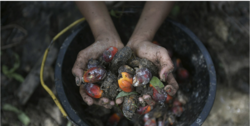SPECIAL REPORTS AND PROJECTS
Sexual exploitation and violence against women at the root of the industrial plantation model
Published
5 years agoon

European colonizers relied on large-scale monoculture plantations to impose their rule on peoples and territories across the global South. Their enforced plantation model – planting one single specie typically on the most fertile and flat land with sufficient water sources available – continues to this day. This seizure of vast amounts of land and dispossession of local populations was -and still is- kept in place by oppression. Uneven power relations routinely discriminate against indigenous peoples and traditional communities, and, in particular, women.
The violence inherent in the colonial plantation model does not spare systems of reproduction of life. That is, systems of collective organization, food sovereignty, community care, cultural and language diversity, ancestral knowledge, among many other aspects. The parts of these systems of reproduction that cannot be commercialized are usually made invisible. They are thus not recognized as work. The associated tasks usually rest on women’s shoulders. Thus, plantation companies’ violence also targets women in their role as pillar of community cohesion. Patriarchal oppression is inseparable from the industrial plantation model, a model that remains at the base of how plantations companies generate profits. (1)
Women confronting the industrial oil palm plantations that are managed by the Luxemburgian-Belgian SOCFIN Company in Sierra Leone told WRM that, “the company takes advantage of women’s labour in so many ways… When the company has already taken over the land, women are most times left with no option but to work for the company. Because they cannot go back to their farms and do their normal activities; they cannot stand up for their families; they cannot take care of their children; they cannot even take care of themselves or put food on the table. They cannot grow food as usual for their own use, so they now depend on buying it from the markets. They are left with no option but to seek a job in these plantations, with this company.
And they are not well paid. The companies are very well aware that women have no other alternative, so they decide how much to pay them, and even how to treat them. Women have to walk from very far away places every day to work, and then return back, on very long walks, exposing themselves to violence.
Their children, most of them, are also going wayward. Because if you cannot take care of your children—especially girls—when they need you most, they will go for anything a man can give them to survive. So the challenges are so much.”
Women confronting the palm oil company PalmCi in Ivory Coast told WRM that,
“Oil palm companies overexploit women. I can assure you that women are very useful for them; they are outstanding workers for the companies. Harvesting fruit all day without resting, day after day for years.
When the Malaysians visit the plantations, these women have to hide and avoid being seen by them. Why do they hide them if the work they do is legal? Other women are forced to cover their baby’s mouth with their hand to muffle their cries and avoid being detected. The companies overexploit women for profit. That is what is happening.”
And women confronting the Socapalm oil palm company in Cameroon, a company that is also part of the Socfin Group, told WRM that,
“Women from different villages in the area have to walk far to come to this very small plot of land. It is the only place we could find to set up our small garden plots. Look, the potatoes are very small. The oil palm plantation is right over there, too close. Nothing grows well because the plantations are right there. As you can see, that is all the land there is [for us to use]. Look at how we are suffering. This little field cannot produce enough for our families. The land produces very little because we have to plant on the same plot every year. We lack land to grow our food. Socapalm has taken our land. Socapalm has taken it all.”
Once companies set up and operate their industrial plantations, sexual violence and oppression against women and girls considerably increases. Rape, physical and psychological abuse, harassment, persecution, work in exchange for sex, beatings, intimidation, violated pregnancies, presence of armed guards in and around people’s homes and in communities, low wages, deplorable conditions and long working days, unpaid work, constant use of toxic products without protection, impacts on women’s reproductive and sexual health, lost access to land, water, livelihoods and sustenance—which translates into harder, more intense and more prolonged domestic and communal work—are but some of the impacts of industrial plantations that are often not named but just called “differentiated impacts”. (2)
The perpetrators of these horrific and constant violations against women’s bodies, lives and minds almost always get away without punishment.
The women from Sierra Leone added that,
“Violence against women goes on without much intervention from our local authority or the police. If you are against the company, nobody will listen to you.
Women have been arrested. They have been molested and beaten – for crimes most of them will deny – and been taken to the police to face charges. Nobody seems to care about what is happening to us. Nobody wants to know or take any action against the perpetrators. There are a lot of challenges that we face with these plantations. Sometimes there are accidents. If you are harmed doing work, or faced with any other challenge, you will be fired without them even considering taking care of you. You will be left to spend your own last dime.
As it is now, the community itself is observing a curfew. Because after 12 midnight, you will not see any woman outside. Everybody knows it will be safer for you to stay indoors.
And to crown it all, there is this fear that has been spread amongst us, since the last incident where we lost two people in our community. It was very brutal. When the police and the army came in, it was very brutal. They made a lot of forceful arrests, including me. I was arrested very late at night. I was asleep, my door was forcefully opened, and I was brought out, beaten, and taken to be detained”
In this regard, the women from Ivory Coast also said that,
“Women are victims of physical and other abuses. Women are beaten and unjustly accused as a pretense to demand favors from them. There is also sexual abuse but this is kept under wraps. They are told: “I saw you in our plantation stealing fruits, ‘You take care of me and I’ll take care of you’,” is what they say, meaning, ‘I’ll let you go with the fruit if you have sex with me.’ This abuse is indeed growing because the plantations are still there and the rapists are also still there.
Are the perpetrators punished? You must be joking; who will punish them? They will claim that you entered private property and deserve what you got. They will ask whether you have a “long arm” as we say here, whether you have a powerful person in your family or know an influential member of the government who can support your complaint. Nobody has been punished for these crimes, despite the broken arms and the traumatized children and women. These crimes go unpunished because might makes right.”
It is also in the interest of the companies and their financial backers (regional and Northern countries’ development banks, the World Bank, financial consultants, etc.) that the domination of a patriarchal model, in particular the violence and abuse against women that is part and parcel of this industrial plantation model, stay invisible for consumers, and thus, without consequences for those who perpetrate that violence.
Yet, against all odds, women are at the forefront of the resistance and the defence of life.
The women from Sierra Leone told us that,
“We have been doing our best over the years in staging or organizing protests; we have been moving from one community to another, sensitizing other women in different communities—not to give in to the agreements being done on our behalf. We have been requesting inclusion in every aspect of land deals in our community. We have been making sure that we remind our authorities that we do not want anything from Socfin. That we want our lands back.
In this context, on November 25th, International Day for the Elimination of Violence against Women, the Informal Alliance against Industrial Oil Palm Plantations came together to denounce the violence and sexual abuse that thousands of women living in and around industrial oil palm plantations face in their daily lives, particularly in West and Central African countries. The video stands in solidarity with all the women who organize to resist these plantations and who are left alone to suffer this violence and abuse in silence.
You can see the video in English, French, Spanish and Portuguese here.
** All the names for this article have been kept anonymous for security reasons.
(1) Plantation patriarchy and structural violence: Women workers in Sri Lanka
(2) WRM Bulletin 236, Women and Plantations: When violence becomes invisible, 2018; breaking the Silence: Harassment, sexual violence and abuse against women in and around industrial oil palm and rubber plantations.
Original post: farmlandgrab.org
Related posts:
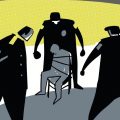
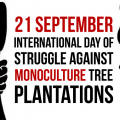 Witness Radio – Uganda, Community members from Mozambique and other organizations around the world say NO to more industrial tree plantations
Witness Radio – Uganda, Community members from Mozambique and other organizations around the world say NO to more industrial tree plantations
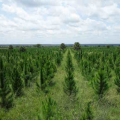 MONOCULTURE TREE PLANTATIONS – Uganda – Promotion of plantation agriculture – a disgrace to human kind and environment
MONOCULTURE TREE PLANTATIONS – Uganda – Promotion of plantation agriculture – a disgrace to human kind and environment
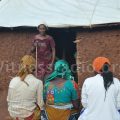 In memory of land and investment women victims in Uganda on the International Women’s Day 2021
In memory of land and investment women victims in Uganda on the International Women’s Day 2021
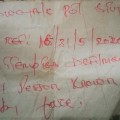 Rape and sexual assault; new tools in Kiryandongo forced land eviction
Rape and sexual assault; new tools in Kiryandongo forced land eviction
You may like
-
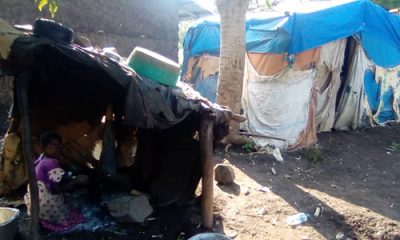

The New Forests Company in Uganda: Villages Evicted, Deceived and Dumped into Poverty
-
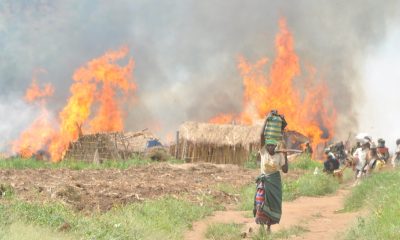

Local land grabbers evict villagers at night; foreign investors cultivate the same lands the next day
-
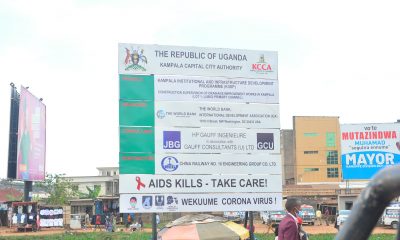

Ugandan communities fighting forced eviction during the COVID-19 pandemic is facing reprisals from the World Bank-funded project implementer, defender arbitrarily arrested
-


…..Special Report; Abridged testimony….. Arbitrary arrested and detained for representing PAPs; an experience of the Witness Radio – Uganda lawyer
-


Breaking! Kiryandongo human rights situation is presented before the United Nations…
-


After being tortured by the army, the land rights defender is charged and remanded to prison
SPECIAL REPORTS AND PROJECTS
‘Food and fossil fuel production causing $5bn of environmental damage an hour’
Published
1 month agoon
December 22, 2025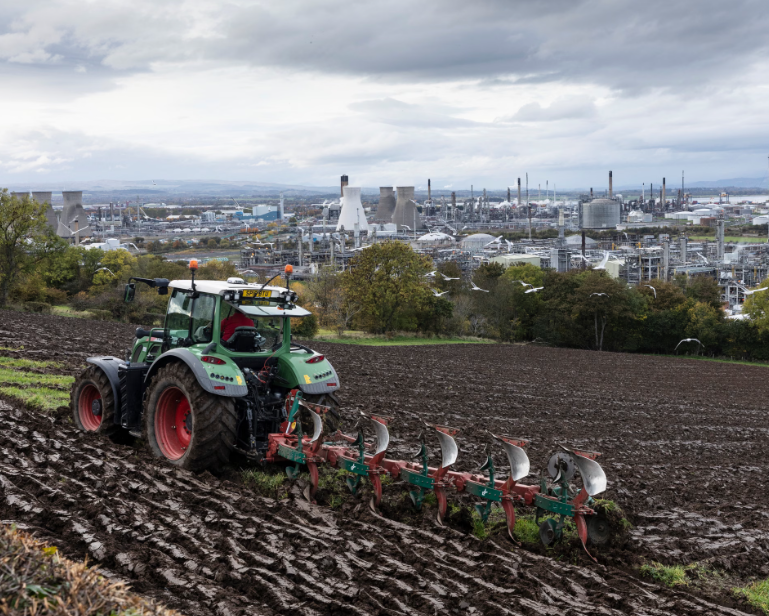
UN GEO report says ending this harm key to global transformation required ‘before collapse becomes inevitable’.
Related posts:

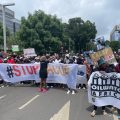 Activists storm TotalEnergies’ office ahead of G20 Summit, demand end to fossil fuel expansion in Africa
Activists storm TotalEnergies’ office ahead of G20 Summit, demand end to fossil fuel expansion in Africa
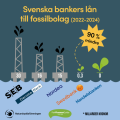 New billion-dollar loans to fossil fuel companies from SEB, Nordea and Danske Bank.
New billion-dollar loans to fossil fuel companies from SEB, Nordea and Danske Bank.
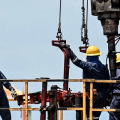 Fossil fuel opponents lobby Africans for support
Fossil fuel opponents lobby Africans for support
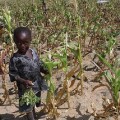 Ecological land grab: food vs fuel vs forests
Ecological land grab: food vs fuel vs forests
SPECIAL REPORTS AND PROJECTS
Britain, Netherlands withdraw $2.2 billion backing for Total-led Mozambique LNG
Published
2 months agoon
December 17, 2025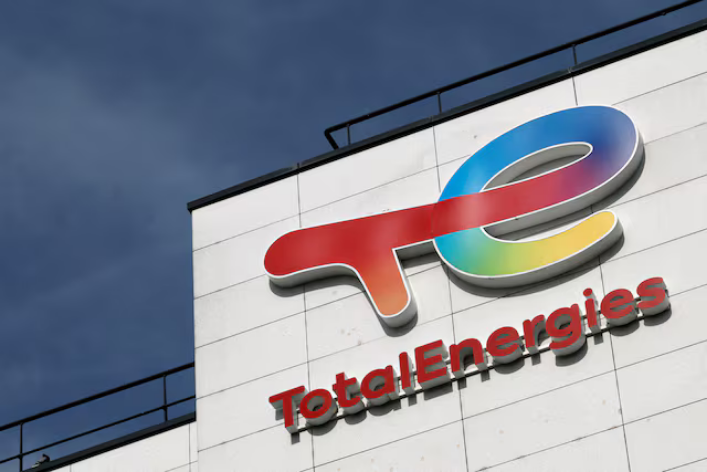
CONSTRUCTION HALTED IN 2021, BUT DUE TO RESTART
PROJECT CAN PROCEED WITHOUT UK, DUTCH FINANCING, TOTAL HAS SAID
CRITICISM FROM ENVIRONMENTAL, HUMAN RIGHTS GROUPS
Related posts:

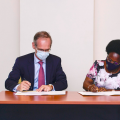 Uganda, Total sign crude oil pipeline deal
Uganda, Total sign crude oil pipeline deal
 Witness Radio – Uganda, Community members from Mozambique and other organizations around the world say NO to more industrial tree plantations
Witness Radio – Uganda, Community members from Mozambique and other organizations around the world say NO to more industrial tree plantations
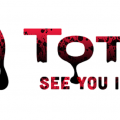 NGOs file suit against Total over Uganda oil project
NGOs file suit against Total over Uganda oil project
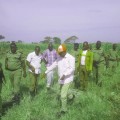 Agribusiness Company with financial support from UK, US and Netherlands is dispossessing thousands.
Agribusiness Company with financial support from UK, US and Netherlands is dispossessing thousands.
SPECIAL REPORTS AND PROJECTS
The secretive cabal of US polluters that is rewriting the EU’s human rights and climate law
Published
2 months agoon
December 5, 2025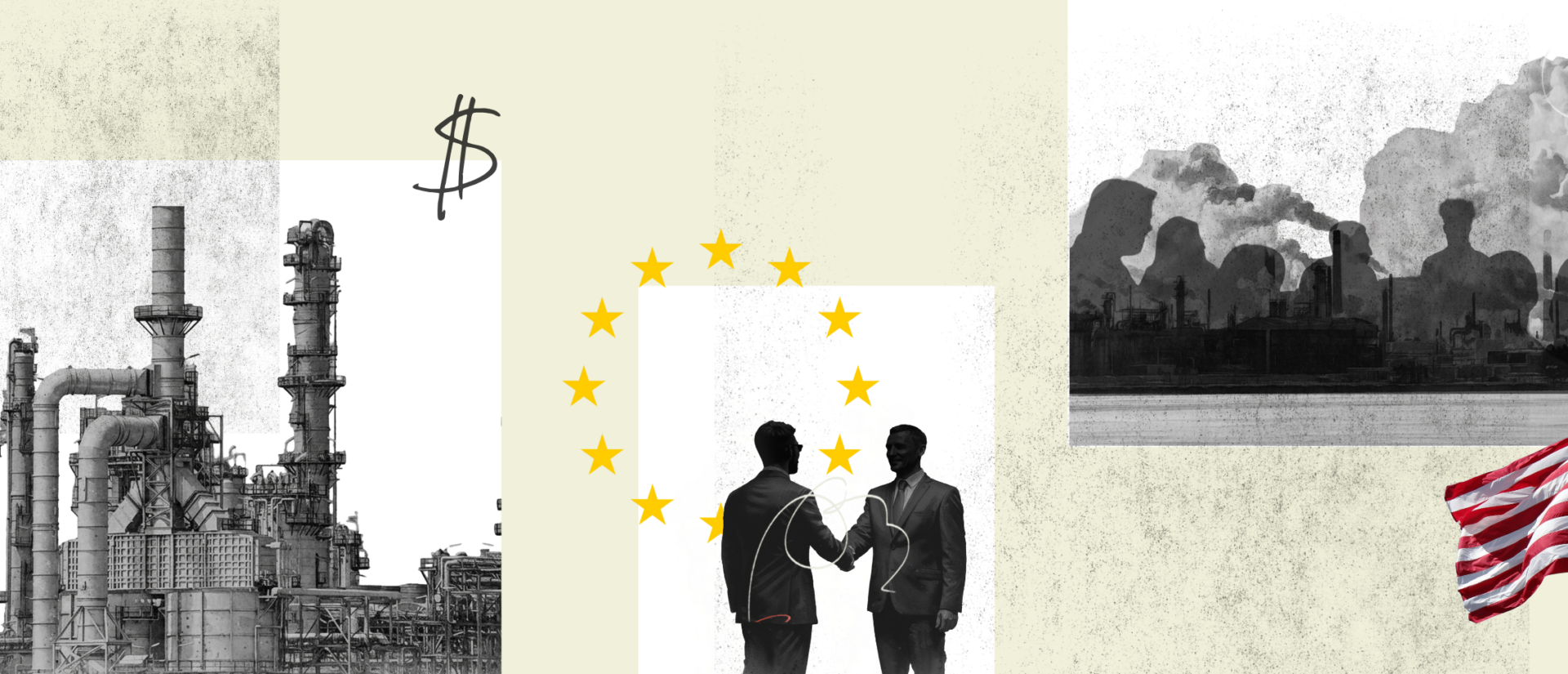
Leaked documents reveal how a secretive alliance of eleven large multinational enterprises has worked to tear down the EU’s flagship human rights and climate law, the Corporate Sustainability Due Diligence Directive (CSDDD). The mostly US-based coalition, which calls itself the Competitiveness Roundtable, has targeted all EU institutions, governments in Europe’s capitals, as well as the Trump administration and other non-EU governments to serve its own interests. With European lawmakers soon moving ahead to completely dilute the CSDDD at the expense of human rights and the climate, this research exposes the fragility of Europe’s democracy.
Key findings
- Leaked documents reveal how a secretive alliance of eleven companies, including Chevron, ExxonMobil, and Koch, Inc., has worked under the guise of a “Competitiveness Roundtable” to get the Corporate Sustainability Due Diligence Directive (CSDDD) either scrapped or massively diluted.
- The companies, most of which are headquartered in the US and operate in the fossil fuel sector, aimed to “divide and conquer in the Council”, sideline “stubborn” European Commission departments, and push the European People’s Party (EPP) in the European Parliament “to side with the right-wing parties as much as possible”.
- Chevron and ExxonMobil were in charge of mobilising pressure against the CSDDD from non-EU countries. The Roundtable companies endeavoured to get the CSDDD high on the agenda of the US-EU trade negotiations and also worked on mobilising other countries against the CSDDD, in order to disguise the US influence.
- Roundtable companies paid the TEHA Group – a think tank – to write a research report and organise an event on EU competitiveness, which echoed the Roundtable’s position and cast doubt on the European Commission’s assessment of the economic impact of the CSDDD.
While Europeans were told that their governments were negotiating a landmark law to hold corporations accountable for human rights abuses and climate damage, a secretive alliance of US fossil fuel giants was working behind the scenes to destroy it. Collaborating under the innocent-sounding name ‘Competitiveness Roundtable’, eleven multinational enterprises have worked closely to eviscerate several EU sustainability laws, including the Corporate Sustainability Due Diligence Directive (CSDDD) and the Corporate Sustainability Reporting Directive (CSRD). This Competitiveness Roundtable may be unknown, but its members are a who’s-who of polluting, mainly US, multinationals, including Chevron, ExxonMobil, and Dow. The group seems to have run rings around all branches of the EU and the Trump administration to get what they want: scrapping, or at least hugely diluting, the CSDDD.
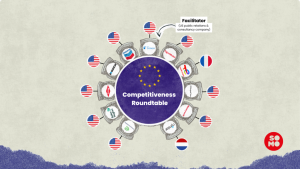
Leaked documents obtained by SOMO reveal how, under the pretext of the now-near-magical concept of ‘competitiveness’, these companies plotted to hijack democratically adopted EU laws and strip them of all meaningful provisions, including those on climate transition plans, civil liability, and the scope of supply chains. EU officials appear not to have known who they were up against. But the documents obtained by SOMO show a high level of organisation and strategising with a clear facilitator: Teneo, a US public relations and consultancy company.
The documents indicate that many of the companies involved wanted to stay hidden from view. After all, if it were widely known that a secretive group of mostly American fossil fuel companies like Chevron, ExxonMobil, and Koch, Inc. was working as a coordinated organisation to dilute an EU climate and human rights law, that might raise questions and serious concern among the public and the policymakers they were targeting. Many of the companies in the Roundtable have never publicly spoken out against the CSDDD.
Big Oil’s ‘Competitiveness Roundtable’
The Competitiveness Roundtable is dominated by fossil fuel companies, including three Big Oil companies (ExxonMobil, Chevron, TotalEnergies) and three other companies with activities in the oil and gas sector (Koch, Inc., Honeywell, and Baker Hughes). Other members are Nyrstar (minerals and metals, a subsidiary of Trafigura Group); Dow, Inc. (chemicals); Enterprise Mobility (car rentals); and JPMorgan Chase (finance).
Teneo, the Roundtable’s coordinator, has a track record(opens in new window) of working with fossil fuel companies, including Chevron, Shell, and Trafigura, and was hired by the government of Azerbaijan to handle public relations(opens in new window) when it hosted the COP29 climate conference.
In February 2025, the European Commission published the Omnibus I proposal(opens in new window), which aims to “simplify” several EU sustainability laws, including the CSDDD. The documents obtained by SOMO reveal that the Roundtable companies, which have been meeting weekly since at least March 2025, worked on deep interventions within each of the three EU institutions to get the Omnibus I package to align exactly with their views. The EU institutions are expected to reach a final agreement on Omnibus I by the end of 2025.
The documents reveal that the Roundtable companies’ activities in the Parliament are far more significant than what is visible in the EU Transparency Register(opens in new window). Eight of the Roundtable’s lobbying meetings during the Strasbourg plenary sessions of May and June 2025, listed in the Transparency Register, show Teneo as the only attendee, thereby failing to disclose the names of other Roundtable companies that participated in these meetings. Another three meetings the Roundtable held were not found in the EU Transparency Register(opens in new window) at all.
“Divide and conquer” the Council
In the European Council, the Roundtable plotted to “divide and conquer” EU governments to get the climate article in the CSDDD deleted. In June 2025, during the final weeks of negotiations in the Council on the Omnibus I proposal, the Roundtable discussed lobbying EU government leaders to “intervene politically” to ensure its priorities were included in the Council’s negotiation mandate. Subsequently, German Chancellor Merz and French President Macron reportedly(opens in new window) personally intervened(opens in new window) in the Council’s political process, leading to a dramatic dilution(opens in new window) of the texts(opens in new window) negotiated in the months before the intervention. Several of the changes made to the texts strongly align with the Roundtable’s demands, including delaying and substantially weakening the climate obligations, scrapping EU civil liability provisions, and limiting the responsibility of companies to take responsibility for their supply chains (the ‘Tier 1’ restriction).

Competitiveness Roundtable meeting document, 11 July 2025.
Additionally, the documents reveal that the Roundtable is still aiming to drum up a “blocking minority” to overturn the Council’s negotiation mandate during the trilogue negotiations, which started in November 2025. By “tak[ing] advantage of the ‘weak’ Council negotiating mandate” and disagreements between EU Member States on “contentious articles”, the Competitiveness Roundtable companies hope to force the Danish Council presidency to give up on including any form of climate obligations in the CSDDD – despite EU Member States’ agreement on this in the June 2025 Council mandate(opens in new window) .
To implement the divide-and-conquer strategy, the Roundtable assigned specific companies to “establish rapporteurships” with different EU governments. TotalEnergies would target the French, Belgian, and Danish governments, and ExxonMobil would target Germany, Hungary, the Czech Republic, and Romania.
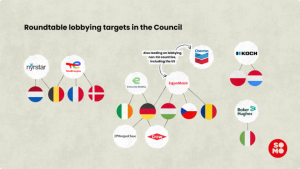
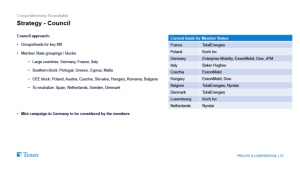
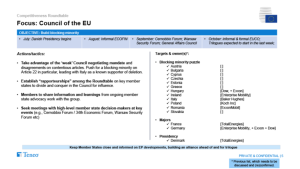
Circumventing “stubborn” European Commission departments
The Roundtable also discussed working on “circumvent[ing]” two “stubborn” European Commission departments involved in the Omnibus political process, DG JUST and DG FISMA, which, in their view, were “unlikely to be willing to see our side of the story”. According to the documents, DG JUST opposed deleting the climate article and restricting the Directive’s scope to only very large enterprises. The Roundtable aimed to diminish the role of these departments by pressuring President Von der Leyen and Commissioners McGrath (DG JUST) and Albuquerque (DG FISMA) by “organising letters from Irish and German business groups” and using an event held by the European Roundtable for Industry to “target” Von der Leyen and McGrath.
Read full report: Somo.nl
Source: Somo
Related posts:

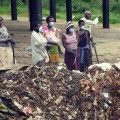 Victims of human rights violations in Uganda still waiting for redress
Victims of human rights violations in Uganda still waiting for redress
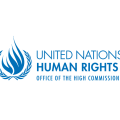 UN Human Rights Chief urges EU leaders to approve key business and human rights legislation
UN Human Rights Chief urges EU leaders to approve key business and human rights legislation
 Business, UN, Govt & Civil Society urge EU to protect sustainability due diligence framework
Business, UN, Govt & Civil Society urge EU to protect sustainability due diligence framework
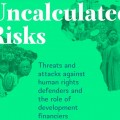 Development financiers fuel human rights abuses – New Report
Development financiers fuel human rights abuses – New Report

Why govt is launching a comprehensive digital land registry

Witness Radio and Seed Savers Network are partnering to produce radio content to save indigenous seeds in Africa.

Evicted from their land to host Refugees: A case of Uganda’s Kyangwali refugee settlement expansion, which left host communities landless.

Women environmental rights defenders in Africa are at the most significant risk of threats and attacks – ALLIED New report

Will Uganda’s next government break the land-grabbing cycle?

Swedish pension fund drops TotalEnergies amid rising EACOP risks

Women environmental rights defenders in Africa are at the most significant risk of threats and attacks – ALLIED New report

Land tenure security as an electoral issue: Museveni warns Kayunga land grabbers, reaffirms protection of sitting tenants.

Innovative Finance from Canada projects positive impact on local communities.
Over 5000 Indigenous Communities evicted in Kiryandongo District
Petition To Land Inquiry Commission Over Human Rights In Kiryandongo District
Invisible victims of Uganda Land Grabs
Resource Center
- Land And Environment Rights In Uganda Experiences From Karamoja And Mid Western Sub Regions
- REPARATORY AND CLIMATE JUSTICE MUST BE AT THE CORE OF COP30, SAY GLOBAL LEADERS AND MOVEMENTS
- LAND GRABS AT GUNPOINT REPORT IN KIRYANDONGO DISTRICT
- THOSE OIL LIARS! THEY DESTROYED MY BUSINESS!
- RESEARCH BRIEF -TOURISM POTENTIAL OF GREATER MASAKA -MARCH 2025
- The Mouila Declaration of the Informal Alliance against the Expansion of Industrial Monocultures
- FORCED LAND EVICTIONS IN UGANDA TRENDS RIGHTS OF DEFENDERS IMPACT AND CALL FOR ACTION
- 12 KEY DEMANDS FROM CSOS TO WORLD LEADERS AT THE OPENING OF COP16 IN SAUDI ARABIA
Legal Framework
READ BY CATEGORY
Newsletter
Trending
-

 MEDIA FOR CHANGE NETWORK1 week ago
MEDIA FOR CHANGE NETWORK1 week agoWomen environmental rights defenders in Africa are at the most significant risk of threats and attacks – ALLIED New report
-

 MEDIA FOR CHANGE NETWORK2 weeks ago
MEDIA FOR CHANGE NETWORK2 weeks agoUganda moves toward a Bamboo Policy to boost environmental conservation and green growth.
-

 FARM NEWS2 weeks ago
FARM NEWS2 weeks ago200 farmers demonstrate at parliament, worried about new seed monopoly
-

 MEDIA FOR CHANGE NETWORK4 days ago
MEDIA FOR CHANGE NETWORK4 days agoEvicted from their land to host Refugees: A case of Uganda’s Kyangwali refugee settlement expansion, which left host communities landless.
-

 MEDIA FOR CHANGE NETWORK4 days ago
MEDIA FOR CHANGE NETWORK4 days agoWitness Radio and Seed Savers Network are partnering to produce radio content to save indigenous seeds in Africa.
-

 MEDIA FOR CHANGE NETWORK2 days ago
MEDIA FOR CHANGE NETWORK2 days agoWhy govt is launching a comprehensive digital land registry

